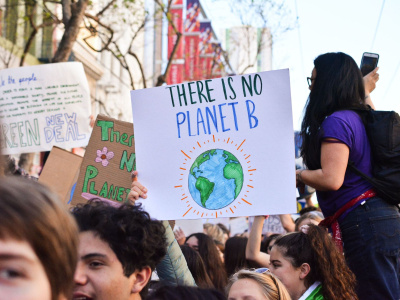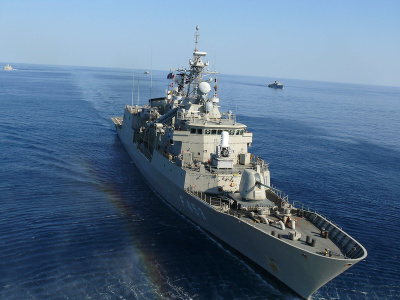This is a fascinating time to be in Mozambique as the European Union (EU) plans its assistance for the years 2014-2020, under the 11th European Development Fund (EDF). The economy is on the move and one of the poorest countries in the world could graduate to middle income status within the next two decades. From being one of the most aid dependent countries, Mozambique should be able to support itself. The European Union can play a role in accompanying that transition.
There is little doubt that the Mozambican economy will grow on the back of natural resource discoveries. The question, however, is who will benefit? Will a resource curse of limited benefits, rent seeking by elites, high exchange rates and import dependency result? Or will revenue be shared and employment created in agriculture and small businesses?
Impressive progress
The experience of the past 20 years has been very positive. Since the conclusion of the General Peace Agreement and the ending of a civil war, Mozambique has been recovering and growing at a fast pace, albeit from a very low base. After 30 years of support to Mozambique, the European Union can share in the credit for the advances made and can help shape the future. With extensive external aid, poverty has been reduced and the basis for a take off of the economy has been laid. 69% of the population was considered poor in 1997 and 54% in 2003. Since then, however, poverty reduction in terms of consumption has stagnated even if access to health services and schooling has continued to improve dramatically. The Millennium Development Goals on child mortality and gender equality are likely to be met. Net enrolment in primary education has more than doubled to 92%. Yet, high rates of maternal mortality, chronic malnutrition among children and of HIV/ AIDS as well as environmental vulnerability and exposure to climate change demonstrate the enormity of the development challenge that remains.
EU Budget Support to Mozambique
The EU has provided a large part if its aid to Mozambique in the form of budget support. We are currently reviewing its impact, but I would argue that the benefits are clear. When I first worked on Mozambique, soon after peace was established, the Government budget was small and three quarters financed by donors who set priorities by their spending choices. Now, the government budget is prudently managed and increasingly well accounted for. It is an instrument for sound macro-economic management and potentially a powerful instrument for provision of social services and transfers to the poor. It is financed by growing domestic revenues and the donors' share has fallen rapidly, from half 5 years ago to 40% this year and a planned 33% next year. Volumes of aid have been high and largely stable despite economic crisis in Europe. This has been achieved through prioritising Mozambique over less poor and less well performing countries. The prospect is of substantial revenues from gas coming on-stream from the end of this decade and for Mozambique to graduate from aid dependence.
Limited progress on Governance
While the economy may be changing rapidly, the political system is resistant to change. A multi-party democracy exists in which many of the practices of the one-party era continue. Access to information is limited and accountability mechanisms weak. There is confusion between party and state and dominance of the executive in which the judiciary and legislature are weak and the space for opposition is circumscribed. This analysis is not just that of the European Union, but has been well identified by Mozambicans themselves as part of the African Peer Review Mechanism. The security apparatus is weak and this is conducive to cross-border crime and leads to human rights abuses.
The EU’s approach to the 11th EDF
It is against this background of high expectations of rapid economic change, but major constraints in terms of human capacity, limited infrastructure, over-regulation and endemic corruption that we are planning EU assistance for the 11th EDF. This is not a time for a premature withdrawal of aid, but rather to consolidate the gains made and help set the course for the next decade. Europe, the EU and its Member States, is not just the largest donor of aid to Mozambique, providing 80% of aid as President Barroso emphasised on his visit in July, but also a major trading partner and investor. There is common cause between the European Union, European Governments and European investors on the need for an appropriate basis for development founded on good governance, democracy and respect for the rule of law. As donor influence inevitably declines, the case for macroeconomic stability, simpler rules and stronger legal protection will be made by the private sector. Donors like the European Union should work with Government to promote sound economic management, accountability mechanisms and the sharing of benefits through growth that creates employment and a budget that provides social services and a safety net for those who may be left out.
We are still discussing with Government how the 11th EDF will look. Government have a poverty reduction programme which identifies well the priorities. Based on the European Commission's "Agenda for Change", it is clear that we will concentrate on fewer sectors, focus on achieving results in poverty reduction and inclusive growth and mobilise as appropriate grants and loans to respond to needs. Where the European Union managed programme cannot respond to key priorities, European Member States will be present, as may be the case in areas such as education and health.
Towards better management
Europe has the weight as a donor and the knowledge as an agency to contribute to a Government budget that manages funds more effectively and can act as a mechanism for re-distribution of wealth. The challenge of inclusive growth means that increasing transparency and accountability have to be ensured. The political culture may not be conducive, but the Government's commitment to achieving compliance with the Extractive Industries Transparency Initiative (EITI), confirmed on 26 October, is a powerful sign that Mozambique intends to take the right path. Publication of contracts for natural resource development is part of the new minerals legislation and civil society takes a growing and informed interest in revenues from natural resources. Increased wealth brings increased incentives for rent seeking and opportunities for corruption, so Europe is supporting strengthening the legal basis for action against corruption and the capacity to implement it. While we are often impatient to see change in our partner countries, Mozambique is a case in which we advise caution to proceed with natural resource developments only when the best deals for the Mozambican people can be ensured. Preparing Mozambique to manage well increased wealth is a key objective.
Agriculture for inclusive growth
As part of our support to Government, Europe can also be a champion of agriculture. Our past experience in the sector is not encouraging, as overly ambitious and centralised initiatives dependent on Government had little impact on productivity, even as production increased through increased cultivation. However, with three quarters of the population dependent on agriculture for their livelihoods, inclusive growth is only possible with growth in agriculture. There are many signs of vitality in rural areas in Mozambique as communications improve, local infrastructure for storage and commercialisation is developed, finance is made available and the private sector expands. The potential for increased production is enormous. Only 15% of the arable land is cultivated. The growing range of higher value products being produced and traded is showing the way. The EU supports the Comprehensive African Agriculture Development Plan (CAADP) and will seek to bring public and private sectors together and focus on spreading the benefits and ensuring the participation of poorer farmers. Safety nets for the most vulnerable will be necessary. With agriculture greatly dependent on the work of women, a focus in this sector can also be a focus on increasing gender equality and giving economic reality to the equality of rights enshrined in Mozambican law.
Spreading the wealth
The good fortune of the North and Centre of the country to have minerals and gas may counter a tendency to development centred on the capital, Maputo, and the South of the country and actually lead to more balanced growth. However, if Mozambique is to avoid creating islands of development, infrastructure development has to promote not just natural resources, where the overwhelming pressure of private sector investment is making itself felt, but also access to markets and services for rural areas to increase agricultural production. Inclusive growth means employment creation for the many and this will be an aim of the European Union through increasing access to energy, addressing skills gaps and the provision of financial services.
Partners in development
For someone like me with experience in development going back 30 years it is invigorating to work in a country where the regional linkages that have been planned over decades are finally starting to function, where progress is visible and rapid. There remain parts of the country largely unchanged since peace was established 20 years ago, but they are shrinking as infrastructural links are completed and the market economy spreads out from cities and towns. Mozambique is a place of constant debate about the future, a laboratory for pilot programmes and the focus of new initiatives. Most of all is a testing ground for strategies to grow an impoverished economy and share the wealth equitably. Europe seeks to place itself among those who make a hard-headed analysis of the risks, who understand the constraints of an economy with such limited domestic capacity, but who are also optimistic about the prospects for success. Mozambique offers the chance for Europe not just to contribute to the development of others, but as the economy continues to grow at nearly 8%, to take a stake in that growth through European investments generating revenue to bolster our own faltering economy. At a time when aid is being increasingly questioned and the pressure for value for money in all areas of public expenditure is intensified, the case for using of public funds to promote the development of Mozambique is stronger than ever.
Paul Malin is Head of the European Union Delegation in Mozambique.
This article was published in Great Insights Volume 1, Issue 10 (December 2012)



